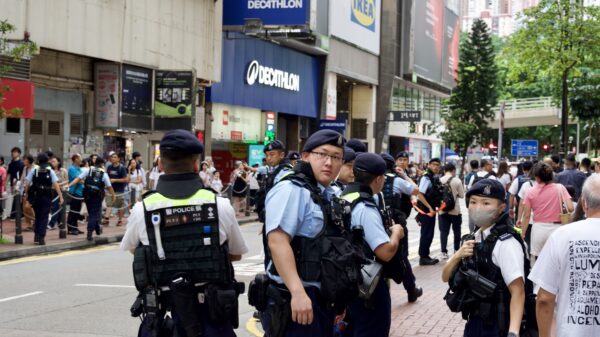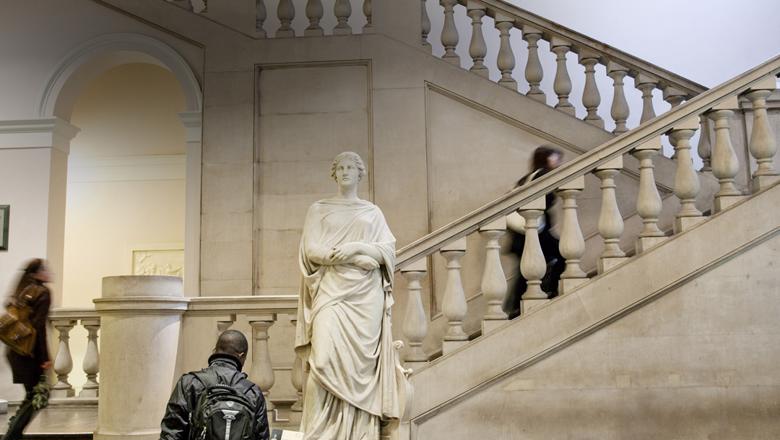Comment writer Elektra Favre discusses Sein Féin’s success in the Northern Ireland elections this May as part of the ‘King’s Votes’ series.
The Northern Irish election on May 5 made history as nationalist party Sinn Féin won a majority vote and the First Minister position for the first time since power-sharing began in Northern Ireland, which has always held a Unionist majority.Â
Since the Good Friday agreement in 1998, which established how a Northern Irish devolved government should run, leadership has been operating on a cross-community framework, meaning the two largest parties in Northern Ireland share leadership and one can’t act without the other. In elections, the most popular party appoints the first minister and the second most popular appoints the deputy first minister. For the first time in history the most popular party and position of first minister was won by Sinn Féin, Northern Ireland’s nationalist party, who favour a unified Ireland.
Why Sinn Féin won
A big reason for this change is a decline in support for Unionist parties like the DUP (Democratic Unionist Party) since 2017. This is in part due to a shift in demographics, which, according to a 2011 census, predicted the Catholic proportion of the population to increase and overtake the Protestant one, the latter usually inclined to vote Unionist.Â
More importantly though, the main reason for the decline in Unionist support is due to party mismanagement and the fallout from the handling of Brexit and the Northern Ireland Protocol. The Democratic Unionist Party, who have held the majority for a long time, have had three different leaders in less than a year. According to Jon Tonge, a politics professor and co-author of The Democratic Unionist Party: From Protest to Power, many feel that “the DUP squandered the balance of power at Westminster when they had this unique opportunity to wield influence, and that they haven’t played their hand very wellâ€.
This, along with issues like that of the Irish Sea border and the NI Protocol, all resulting from Brexit which was supported by the DUP, have caused many to lose faith in the Unionist party. As of recently, the DUP has promised not to return to government unless the NI Protocol plans are re-evaluated or thrown out. Their main issue with it being that it creates a symbolic line between Northern Ireland and the UK and thus poses a threat to a United Kingdom and their place in it. In light of the current change in political climate and Sinn Féin’s historic win, the DUP are understandably scrambling to erase any kind of threat to a United Kingdom.Â
Overall, there is a popular sentiment among DUP supporters that their elected officials have dropped the ball and a lot of disillusioned voters are now choosing to change their choice of party or abstain from voting altogether. Many said this election was “Sinn Féin’s to lose” as the fall in DUP support was a big part of their success, along with the nationalist party’s avoidance of any controversies that might have galvanised jaded DUP voters. Sinn Féin’s are now are appealing to younger audiences by focusing on bread-and-butter issues, rather than fixating on the promise of Irish unification.Â
Sinn Féin’s focus on helping voters through the cost of living crisis
In the aftermath of a gruelling pandemic and the realities of Brexit’s economic consequences on Northern Ireland, many in the country are facing the difficulties of the cost-of-living crisis. Heating and electricity prices have risen to the point where, according to consumer publication Which?, 46% of people say they are cutting on their heating, and over four in ten people have “reduced their use of lights and appliances around the homeâ€. Many families have reported seeing an increase in food prices and generally feeling the effects of an increasingly more expensive cost of living.Â
In response to the crisis, Sinn Féin is proposing a £230 payment for each household to help deal with rising costs in addition to the fuel and energy schemes that are being implemented. The nationalist party’s focus is on proving to the Northern Irish voters that they are intent on working for them and bringing them actionable results. This is why many parties are also concerned with ‘fixing the NHS’; Michelle O’Neill, the party’s leader in Northern Ireland says that “if we’re going to look after those people who actually look after us, then we must invest in them.â€Â
Sinn Féin have also garnered more support by appealing to younger audiences. In contrast to a very conservative and traditionalist DUP, Sinn Féin have shown strong support for access to abortion services in Northern Ireland, which were just recently decriminalised in 2019. The party, in contrast to the DUP whose members have openly objected to same-sex marriage, has attracted many young voters who see an opportunity for a more open-minded Northern Ireland.
What does a Sinn Féin win mean for Irish Unification?
Many Unionists fear Sinn Féin’s win could mean a fast approaching border poll and an attempt at Irish unification. And while we are some way away from reaching that hurdle, since the First Minister alone does not have the power to organise a border poll, there is no mistaking the significance of the step towards Irish unification the Sinn Féin win brings. With a Nationalist Party majority in Scotland, this Northern Irish election could show a symbolic change for unity in the United Kingdom.
Meanwhile though, many in Ireland are simply hoping that their elected officials will work together. With the DUP having promised not to return to government until the NI Protocol is thrown out, the odds of this new government’s run starting off smoothly are slim. In the face of a mounting cost-of-living crisis, many are hoping newly elected officials will set their disagreements aside and take action to help their constituents.














